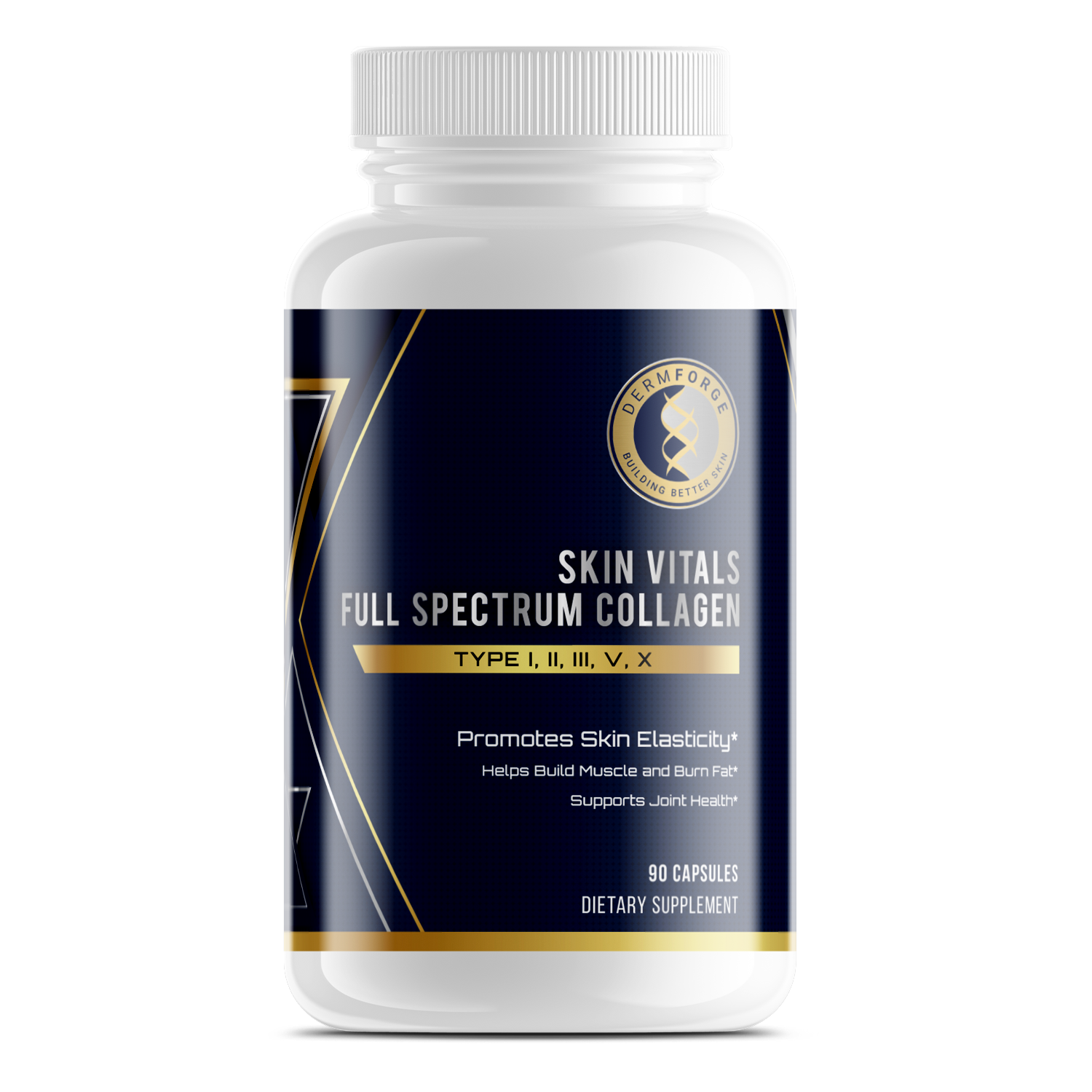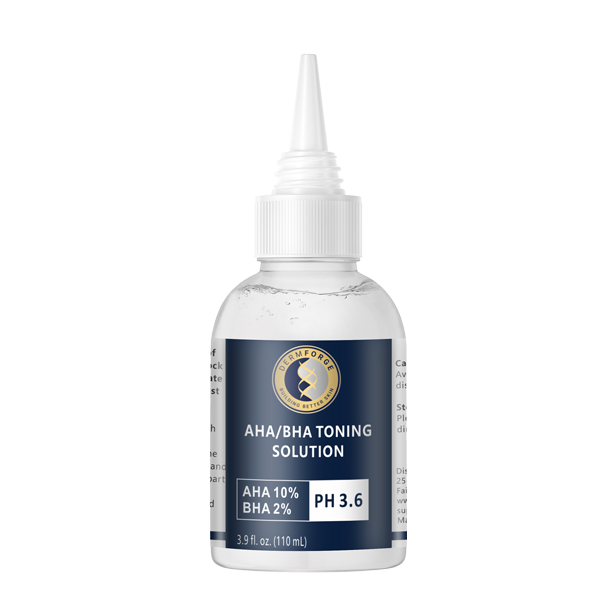Many people already include collagen, vitamin C, or hyaluronic acid in their skincare routine. However, vitamins K2 and D3 for the skin offer a different kind of support. These nutrients work beneath the surface to help your skin stay firm, balanced, and resilient. That makes them worth considering if you're looking for long-term improvements.
Unlike surface treatments, these vitamins influence how your body manages calcium, inflammation, and cell turnover. Therefore, they may help improve texture, tone, and barrier strength. You might not see instant results, but consistent use often supports deeper changes in skin structure.
Additionally, interest in functional skincare continues to grow. More consumers now ask for products that do more than hydrate. They want clear benefits tied to internal health. That shift creates space for nutrients like K2 and D3 to stand out in both supplement and topical formulas.
You can take these vitamins in capsule form or apply them through creams and serums. Some brands combine them with other nutrients to support collagen or reduce redness. Therefore, you can build a routine that fits your goals without needing to overhaul everything.
Understanding how nutrients affect the skin helps you make better choices. These two vitamins support processes that matter as you age. When included in your routine, they can help maintain smoother, firmer, and more even skin.
If you're ready to focus on deeper skin health, these vitamins deserve your attention. You don’t need complicated products. What you need is the right support, used consistently, with your specific needs in mind.
The Role of Vitamins in Skin Health
Your skin relies on many nutrients to stay strong, smooth, and balanced. Vitamins help support those functions from the inside out. Some protect your skin from damage, while others help repair and renew surface cells. Therefore, getting the right mix matters.
Many people know about vitamin C or E, but fewer talk about K2 and D3. However, these two nutrients also support skin health. They work deeper in the body and help manage systems that affect how your skin looks and feels. That makes them useful for long-term skin support.
Vitamins K2 and D3 for the skin play specific roles that set them apart. K2 helps manage calcium and supports tissue structure. D3 helps regulate immune responses and supports new cell growth. Additionally, both play a part in how the body maintains balance in the skin barrier.
You may already take these vitamins for bone or heart health. However, their effects extend beyond internal systems. When your body manages calcium properly and renews skin cells efficiently, your skin looks clearer and feels firmer. Therefore, these nutrients offer more value than many people realize.
Some supplements now include both K2 and D3 for this reason. Additionally, you’ll find topical products that aim to deliver these vitamins through the skin. These options give you flexibility depending on your habits and preferences.
Before adding any supplement to your routine, think about your goals. Then match them to nutrients that support those results. When you include the right vitamins in your day, your skin benefits from the inside and the outside.
How Vitamin K2 Supports Skin Structure and Elasticity
Vitamin K2 supports more than bone and heart health. It also plays a role in how your skin stays firm and elastic. This vitamin helps guide calcium into bones and away from soft tissues. Therefore, it reduces calcium buildup in places where it doesn’t belong.
When calcium collects in soft tissue, it may affect flexibility and firmness. That includes areas like your skin and blood vessels. Additionally, this process can make the skin look dull or less elastic over time. By managing calcium placement, K2 helps maintain clearer and smoother skin.
You may not feel changes right away, but long-term use of K2 may support more stable tissue health. Therefore, some people include it in their skincare or wellness routines. When used consistently, it may contribute to better texture and a more resilient appearance.
The connection between calcium management and skin elasticity continues to gain attention. Some supplement brands now include K2 in blends made for beauty or aging support. Additionally, new research supports its use in products aimed at firmness and clarity.
While you can take K2 on its own, it often works well with other nutrients. For example, vitamins K2 and D3 for the skin are often paired to support both tissue health and immune balance. This pairing helps guide calcium correctly and supports overall skin structure.
When you understand how K2 affects your skin, you can make better supplement choices. Products that support internal balance often help your skin look better over time. That gives you more control over how your skin looks and feels from within.
The Benefits of Vitamin D3 for Skin Renewal and Immunity
Vitamin D3 supports more than bone health. It also plays a role in how your skin renews and protects itself. Your skin needs regular cell turnover to stay clear, smooth, and even in tone. Therefore, D3 helps maintain a more stable renewal cycle over time.
Additionally, D3 supports your skin’s natural barrier. This barrier keeps moisture in and blocks outside irritants. When the barrier breaks down, your skin may become dry, reactive, or uneven. Therefore, consistent D3 levels help maintain a stronger outer layer.
Vitamin D3 also supports immune function in the skin. Your skin acts as a first line of defense against environmental stress. D3 helps regulate that response and keeps inflammation in check. Therefore, it supports recovery from stress caused by sun, wind, or dryness.
Many people experience low D3 levels, especially during colder months or when spending less time outdoors. However, supplements offer a practical way to restore balance. You may also find D3 in skincare formulas that target redness or uneven tone.
Products that combine vitamins K2 and D3 for the skin often support structure and immune health together. This pairing helps regulate internal balance while supporting visible improvements. Additionally, combining these nutrients may provide a more complete wellness solution.
When you focus on both skin renewal and immune support, your routine becomes more effective. D3 plays a part in both systems. That makes it a valuable nutrient for long-term skin health and balance.
Synergy Between Vitamins K2 and D3 in Skin Care
Vitamins often work better when paired with others that support their function. That’s the case with vitamin K2 and vitamin D3. These two nutrients affect how your body handles calcium, which can impact both internal health and skin appearance.
Vitamin D3 helps your body absorb calcium from food or supplements. However, once absorbed, the calcium needs direction. That’s where vitamin K2 plays a role. It helps guide calcium into bones and away from soft tissues. Therefore, together they help maintain balance throughout the body.
This process affects more than bones and arteries. Your skin also benefits from proper calcium management. When calcium collects where it shouldn’t, it can reduce flexibility and dull your skin’s appearance. Additionally, excess calcium in soft tissues may interfere with collagen function over time.
Collagen is essential for skin firmness and resilience. When calcium remains in the right places, collagen can better support skin structure. Therefore, combining K2 and D3 may offer added value for people focused on firmness and elasticity.
Some supplements now include both nutrients in one formula. Additionally, skincare brands are starting to explore their combined benefits in topical products. These formulas often target aging concerns and overall texture.
Using vitamins K2 and D3 for the skin may provide a more complete approach than using either one alone. When you support internal balance, your skin often reflects that improvement. That’s why many people now choose to include both nutrients in their wellness plans.
Topical vs. Oral Supplements: What Delivers Better Results?
Collagen, hydration, and skin tone often depend on how nutrients are delivered. With vitamins, both topical and oral options are available. Each method comes with trade-offs in performance, convenience, and absorption.
Oral supplements go through your digestive system. They reach your bloodstream and can support skin health from the inside. Therefore, they often target long-term improvements in firmness, elasticity, and balance. This method works well for nutrients like vitamins K2 and D3 for the skin, which support internal systems.
Topical products, on the other hand, act on the skin’s surface. They aim to deliver active ingredients directly to the outer layers. This method may provide faster results in texture or moisture. However, deeper benefits may be limited if absorption is low or inconsistent.
Additionally, bioavailability matters. Oral supplements offer more predictable absorption for fat-soluble vitamins like D3 and K2. Topical products vary by formulation, delivery system, and skin type. Therefore, results may depend on product quality and how consistently you apply it.
Consumer preferences also guide decisions. Some people prefer oral supplements because they fit into existing routines. Others choose topicals to target specific areas, such as the face or hands. Additionally, some brands now combine both methods to appeal to a wider audience.
When comparing delivery methods, consider your goals and habits. If you want broader support, oral supplements may work better. For spot treatment or short-term improvement, topicals offer another option. Both forms can play a role in a well-rounded skincare approach.
Market Trends and Consumer Interest in K2 and D3 for Skincare
Consumer interest in targeted skincare continues to rise. People want more than hydration or general wellness. They want results tied to specific ingredients. Therefore, supplements that support long-term skin health are gaining more attention across all age groups.
Many shoppers now look for science-backed solutions that go beyond surface treatment. Additionally, they want products that support the body’s internal systems. This shift creates space for nutrients like vitamins K2 and D3 for the skin. These vitamins help regulate calcium and support structure, which matters for firmness and clarity.
Brands that offer focused, ingredient-driven formulas can stand out in a busy market. However, the message must be clear and credible. You need to explain how a product works without overwhelming the buyer. That includes calling out benefits like improved skin structure, tone, or barrier support.
The supplement and skincare spaces are starting to overlap more. Some brands now combine ingestible and topical options to offer a fuller experience. Therefore, you may see more crossover in how products are packaged and sold. That gives you room to create bundles or step-based routines.
Additionally, shoppers often read labels more carefully than before. Many want clean ingredients and simple claims. Others look for vitamins that align with their diet or ethical preferences. Therefore, transparency in sourcing and labeling matters more than ever.
When you align your product with this shift in demand, you can reach consumers looking for long-term skin support. Offering focused nutrients with clear roles gives your brand more trust and stronger results.
Conclusion
Vitamins play a larger role in skincare than many people realize. Nutrients like K2 and D3 go beyond surface-level support. They work internally to influence how your skin ages, renews, and maintains balance. Therefore, they deserve more attention in your daily routine.
Additionally, combining vitamins with clear function often leads to better outcomes. Vitamins K2 and D3 for the skin help regulate calcium and support collagen. This combination supports both structure and surface appearance over time. That makes them valuable in both supplement and skincare categories.
More consumers now look for focused, science-backed products. If your goals include firmer skin, stronger barriers, or balanced tone, these vitamins may help. However, results often depend on quality, consistency, and how well a product fits your routine.
You can take these nutrients through capsules or powders. Additionally, some brands offer creams or serums that include them in topical formulas. Both delivery methods offer benefits depending on your goals and preferences. You may find the best results by using both together.
Before you choose a product, think about what your skin needs most. Then match that need with ingredients that support it directly. When you build your routine around clear functions, your results become easier to track and maintain.
Long-term skin health comes from a mix of nutrients, habits, and consistency. Adding targeted support can help your skin stay balanced and strong. When used regularly, these vitamins may become a quiet but steady part of your overall skin care plan.







